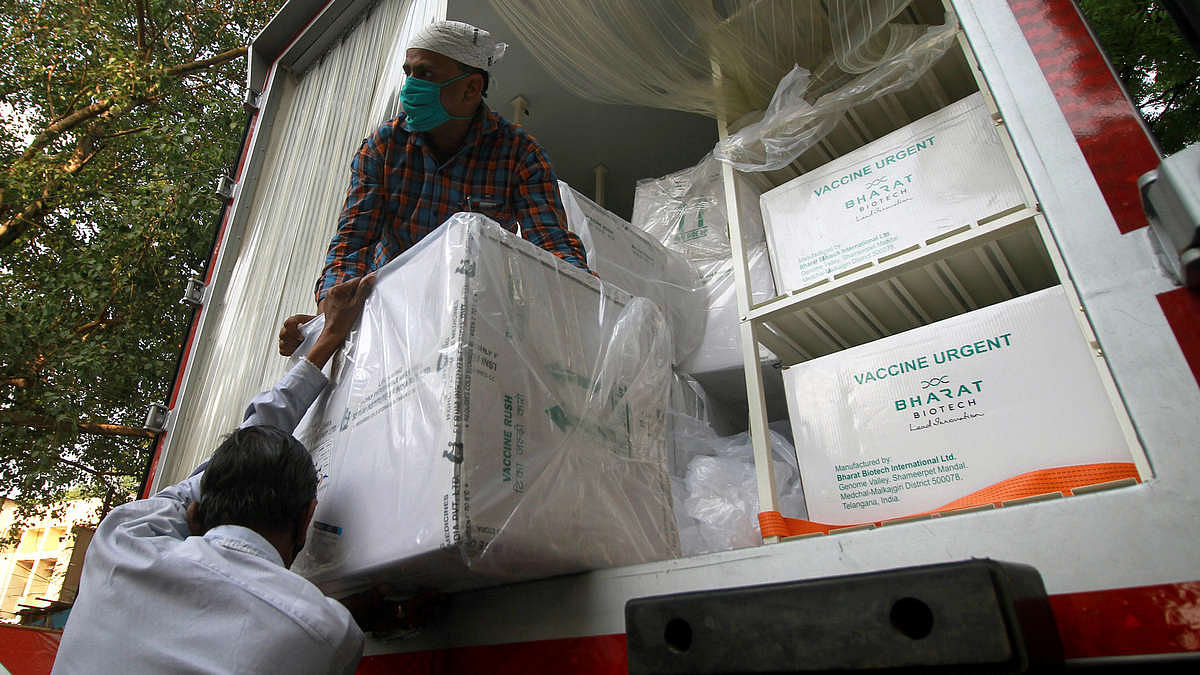New Delhi: The Indian Council of Medical Research (ICMR) Monday asked an international medical journal to retract a Banaras Hindu University (BHU)-led study reporting serious adverse health events in one out of every 100 individuals who received Covaxin.
Published last week in Springer Nature’s Drug Safety journal, the study, which said nearly 30 percent of Covaxin recipients suffered from one or other side effects during a one-year follow-up period, was dismissed as “misleading” by ICMR, the apex health research agency in India.
The COVID-19 vaccine, Covaxin, was indigenously developed and manufactured by Hyderabad-based vaccine maker Bharat Biotech jointly with ICMR-National Institute of Virology (NIV) after the SARS-CoV-2 strain was isolated in NIV, Pune, and transferred to the company. Nearly 36.39 crore Covaxin doses have been administered in the country, so far.
“The article misleadingly and erroneously acknowledges the ICMR. ICMR is not associated with this study and has not provided any financial or technical support for the research,” ICMR, which is under the Union health ministry, said in a statement.
ICMR director general (DG-ICMR) Rajiv Bahal also sent letters to the paper authors and the journal editor to remove the acknowledgment to ICMR immediately and publish an erratum while suggesting the paper’s retraction. Failure to do so may prompt ICMR to consider legal and administrative action, Bahl wrote.
ThePrint has seen copies of these letters.
In the letters, Bahl pointed out that the ICMR was acknowledged for research support without any prior approval or intimation, calling the move ‘inappropriate’ and ‘unacceptable’. He also said that the ICMR cannot be associated with the poorly designed study, which purports to present a ”safety analysis” of Covaxin, owing to critical flaws such as having no control of unvaccinated individuals for comparing the rates of adverse events among the vaccinated and unvaccinated groups.
The study also does not even provide the background rates of observed events in the population, making it impossible to assess the change in the incidence of the observed events in the Covaxin recipients in the post-vaccination period, Bahl said in the letters. So, the study tool is inconsistent with the adverse events of special interest (AESIs) as defined by the AESI, which the BHU paper also referenced, he wrote.
According to Bahl, the data collection methodology has a high risk of bias as the researchers contacted the study participants telephonically one year after vaccination and recorded their responses without any confirmation with clinical records or physician examinations.
He also noted similar acknowledgements to the ICMR made by the authors in previous papers without permission and raised concerns about their practices. “The editor (of the journal Springer Nature) has been asked to retract the paper which implicitly makes conclusions on vaccine safety which are not supported by evidence,” he said.
The study’s lead author, Upinder Kaur, told ThePrint that all communications received by the authors from ICMR are treated with utmost respect and as confidential. “We have already mailed the DG-ICMR, with (a) copy (sent) to the Director, Institute of Medical Sciences. We do not wish to make any other statements as we are scientists and do not like getting involved in unnecessary public controversies,” she said.
ThePrint also emailed the journal editor, Nitin Joshi. This copy will be updated if and when a response is received.
Also read: Andhra has 3rd highest C-section rate in India. How it’s trying to reverse trend, with midwives at helm
The study and the controversy it triggered
The study is a prospective observational study conducted from January 2022 to August 2023, during which adolescents and adults who received the vaccine were interviewed telephonically about long-term AESIs after one year of vaccination.
The paper said that of 1,024 individuals enrolled in the study, the researchers could contact only 635 adolescents and 291 adults during the one-year follow-up, with 304 (47.9 percent) adolescents and 124 (42.6 percent) adults reporting viral upper respiratory tract infections.
“New-onset skin and subcutaneous disorders (10.5 percent), general disorders (10.2 percent), and nervous system disorders (4.7 percent) were the common AESIs in adolescents. General disorders (8.9 percetn), musculoskeletal disorders (5.8 percent), and nervous system disorders (5.5 percent) were the common AESIs in adults,” said the study.
“Menstrual abnormalities were noticed in 4.6 percent of female participants,” the researchers noted. “Ocular abnormalities and hypothyroidism were observed in 2.7 percent and 0.6 percent of participants, respectively.”
Among serious AESIs (1 percent), stroke and Guillain–Barre syndrome, an autoimmune disorder affecting the nerves, were identified in 0.3 percent and 0.1 percent of participants, respectively, the study said.
After the study was published, Bharat Biotech, in a statement last week, stressed that for such a study in vaccine safety to be effective and informative and to avoid investigator bias, data points such as the AESI safety profile of the subjects before they participated in the study and a comparison of the safety profile of non-vaccinated subjects in the period of study are also required.
It further said that a comparison with the safety profiles of subjects who received other vaccines should also be part of the study, and all study participants, instead of only a subset, should be followed up with.
Bharat Biotech added that several studies have been executed on the safety of Covaxin and published in peer-reviewed journals, demonstrating an excellent safety track record.
(Edited by Madhurita Goswami)
Also read: India-specific growth standards for kids to gauge nutrition may be far off, govt wants a study first

